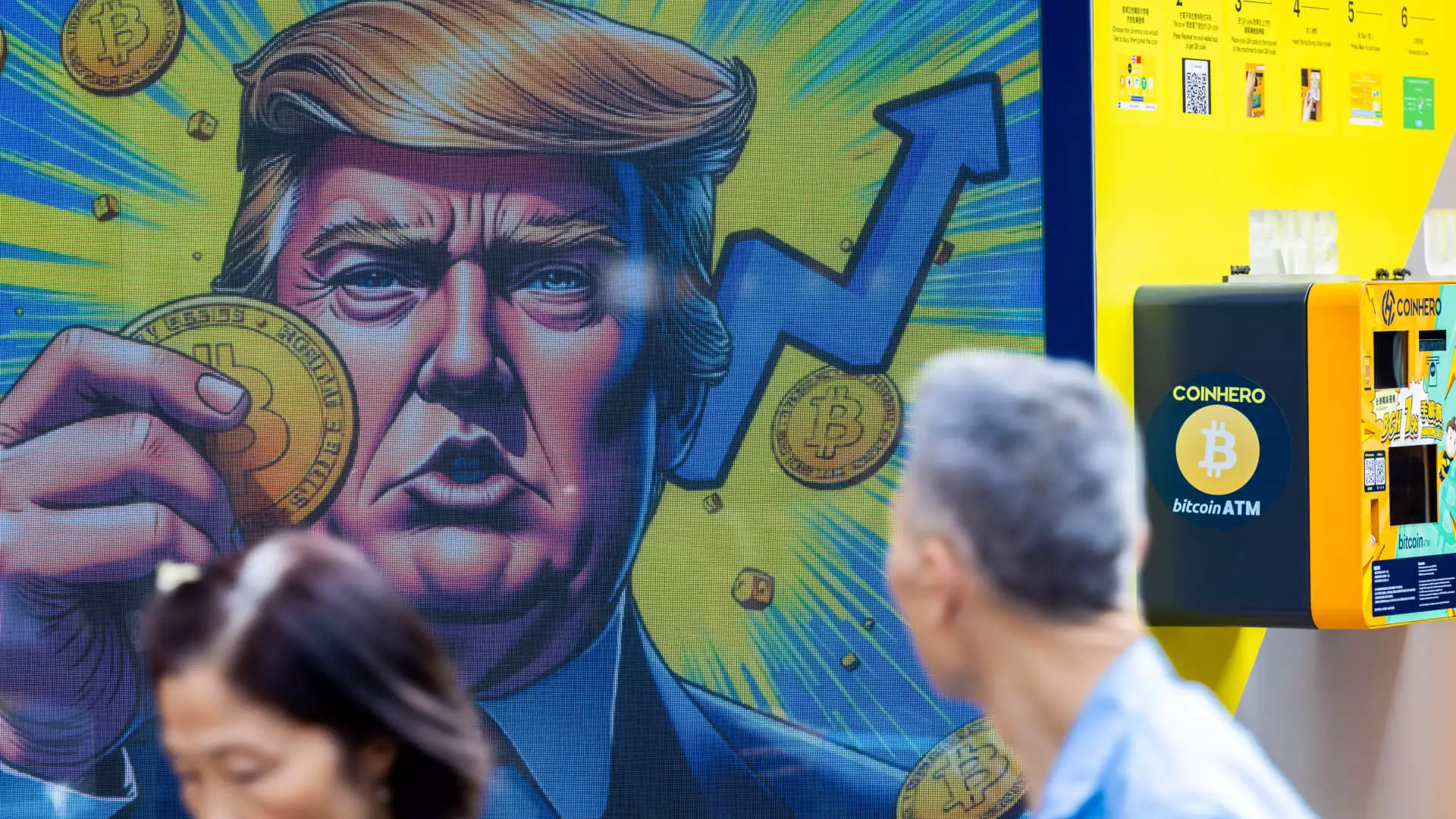The recent euphoria surrounding President Donald Trump’s $TRUMP cryptocurrency token raises significant questions about ethics, governance, and the evolving relationship between politics and the digital asset world. In a matter of days, nearly $900,000 in trading fees was amassed following the announcement of an exclusive dinner with Trump for the top holders of the token. This event exemplifies how cryptocurrencies are being utilized not merely as speculative assets but as VIP access passes to political figures. It’s an opportunity to decode the complex implications inherent in this fusion of crypto culture and political life.
The $TRUMP token’s emergence underscores a growing trend within the cryptocurrency market — the rise of memecoins. Unlike traditional cryptocurrencies, which often offer unique utility, memecoins largely derive their value from cultural factors, internet trends, and social media buzz. While some successful examples, like Dogecoin, have captivated public imagination, the $TRUMP token, with its direct ties to a political figure, draws on a different vein of speculation. It is not just a fad; it seems the boundaries between entertainment, commerce, and governmental influence are increasingly being blurred.
Ethics and Tokenomics: A Recipe for Controversy
Critics argue that the transactional nature of the $TRUMP token’s new model — a ‘dinner with the president’ for influential holders — epitomizes an ethical crisis within presidential conduct. The inherent structure of the token is worrisome; approximately 80% of the supply is controlled by the Trump Organization and its affiliates. This concentration of token ownership raises red flags regarding potential conflicts of interest and the implications of monetizing presidential access.
Prominent figures like Senators Chris Murphy and Elizabeth Warren have described this as a clear instance of “pay to play,” compounding concerns about Trump’s approach to governance. It harkens back to a troubling trend where political access is commodified, and powerful positions can be exploited for personal enrichment — a blurring of lines that used to be deemed taboo in American politics. The concern is not just about legality but fundamentally about the integrity of political institutions.
Delaney Marsco from the Campaign Legal Center aptly noted that while Trump’s actions might not violate criminal conflicts of interest statutes, they do erode the ethical boundaries expected of presidential office holders. Traditionally, U.S. presidents have divested from financial interests to prevent the perception of impropriety during their tenure. The willingness to flout these types of norms signals a dangerous shift in the landscape of American politics.
Insider Trading or Innovative Marketing? The Narrative of Speculation
The trading activity generated by the $TRUMP token — a staggering $324.5 million in trading fees since its inception — raises another layer of complexity. With its embedded mechanism to route a percentage of trades back to wallets controlled by the project’s creators, the narrative teeters precariously between innovative financial marketing and insider trading practices. The leaderboards displaying top holders induce a sense of competition, encouraging speculation and participation while simultaneously making it difficult to scrutinize who is truly benefiting from this project.
Critics contend this creates an environment ripe for exploitation, claiming that the moneymaking incentives are prioritized over the well-being of investors. It’s essential to differentiate between the democratization of finance that crypto advocates often promote and the potential for manipulation of investors in an unregulated market plagued by secrecy and misinformation.
The Broader Implications: Cryptocurrency and Political Power
The fusion of cryptocurrency and politics is not isolated; it is shaping the future of campaign financing. The $TRUMP token and its allied ventures signify a paradigm shift where traditional fundraising modes may be overshadowed by the excitement around digital assets. This trend delineates a potentially dangerous trajectory for future elections where the balance of power could skew dramatically based on financial leverage in the crypto market.
Despite Trump’s initial skepticism toward cryptocurrencies during his first term, he has pivoted dramatically, presenting himself as a champion of digital innovation, lining the pockets of his campaign with significant contributions from the crypto sector. This newfound embrace of digital assets – despite regulatory risks and market volatility – illustrates the malleable nature of political alignments in response to emerging financial landscapes.
The $TRUMP token represents a broader marketing strategy leveraged by the Trump family within the cryptocurrency ecosystem, and whether through memecoins or more reliable digital futures, the implications for accountability in U.S. governance remain starkly evident. The cryptocurrency world may celebrate its decentralization and innovation, but as the $TRUMP phenomenon clearly shows, it also invites complex ethical predicaments. The questions we must grapple with today are not just about financial gains, but the very fabric of trust in our political institutions and the integrity of democratic processes.


Leave a Reply